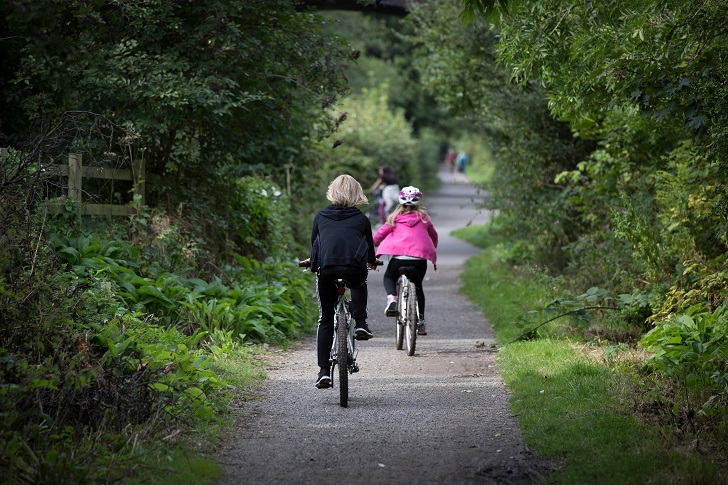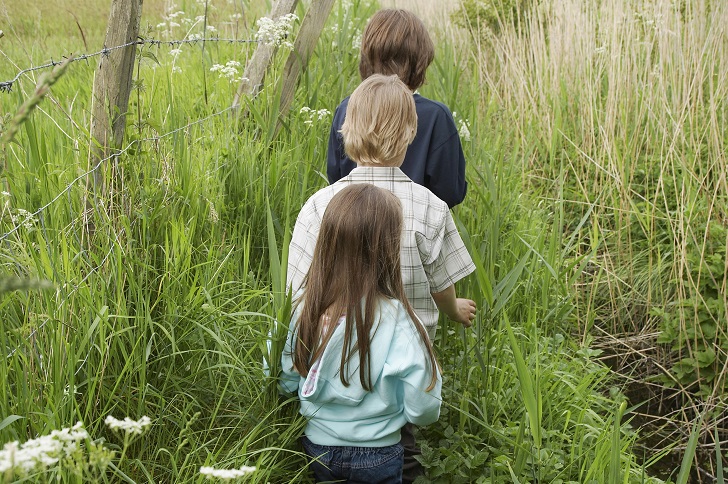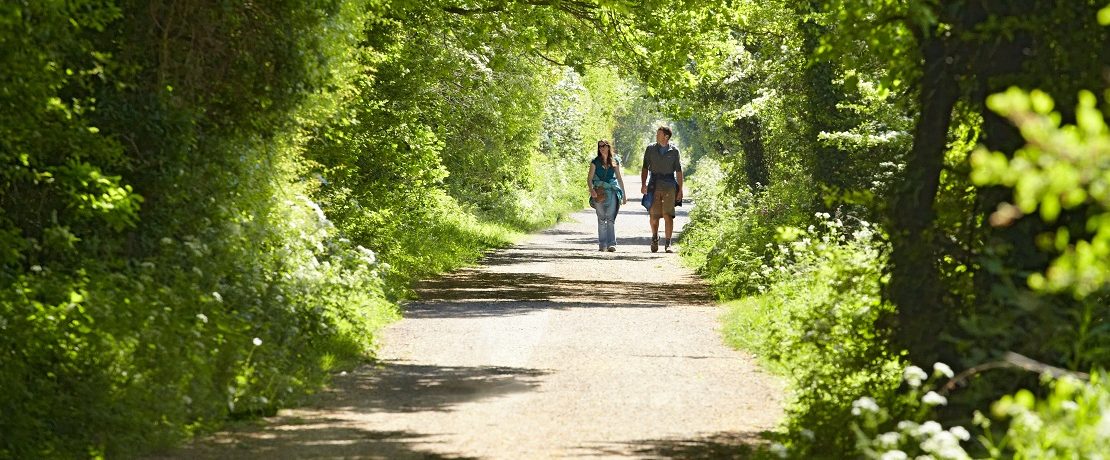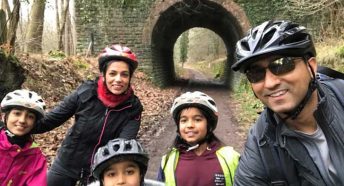Chris Boardman: ‘My England’
A cycling champion in every sense, Chris Boardman tells CPRE why he’s given up his car – and explains why his other bike is a tractor.
The bicycle is right up there with the printing press as one of the most important things we have ever invented.
That might sound melodramatic – but consider that climate change, health, pollution and congestion can all be tackled by using this cheap and easy machine to move around for short journeys. Cycling could have a hugely positive impact on the biggest problems we’ve got. You halve your chance of serious illnesses just by using a bike regularly.
Being a professional bike rider was a wonderful chapter of my life; pretty turbulent at times, but ultimately wonderful. But it’s always what happens next that’s most important to me. And what I’m doing now – trying to change the way we move around in this country – is the most important thing I’ve ever done.
Making space for people
I don’t want to encourage people to cycle; I want to enable them. Enabling means providing the space and opportunity to not have to use a car. If you put it in those terms, people understand what you’re talking about. They realise they haven’t really got that choice right now. They don’t ride a bike to the shop because they don’t feel safe. We have a finite amount of public space, and we’ve allocated far too much of it to people driving cars.
Just putting in a few crossings, or adding a bit of bike path, isn’t enough. Then all people can think about is the cost and the hassle. But if you can show that this bit of bike path is part of a region-wide plan, which is good news for health, pollution and the climate, then everybody feels part of something bigger.
That’s what we’ve tried to do with the Bee Network for walking and cycling in the Manchester region; create a plan people can be proud of.
The joys of commuting
I used to do at least 25,000 miles a year in my car. But before last year’s lockdown I’d already decided I didn’t like driving much. My workplace in Greater Manchester is 40 miles from my home on the Wirral Peninsula, and it was a 1.5-hour drive each way. So I decided to try public transport instead.
I’m lucky to live close to the Wirral Way, one of the old Beeching railway lines that have been converted into cycle paths. That puts me within a 30-minute cycle ride of two stations. And unlike driving, being on the train wasn’t just ‘dead time’: I could send emails, listen to an audio book or catch up on sleep.

After two months, I decided to give up my car for good. If I do ever need one, I’ll just hire it for the day, which will leave me better off in the long run. Plus, that 30 minutes on the bike each way is a bit of exercise that I barely even notice I’m doing.
It’s been fantastic to see the popularity of the Wirral Way over the past year: young people, old people, all walking and cycling. I saw a survey saying that 94% of people who have ridden a bike during lockdown are intending to cycle more as a result.
Getting close to nature
If I want wilderness, I head north. Probably because in normal times it’s easily accessible to me. Sometimes the Lakes, but Scotland has become my go-to place over the years. The beauty of Scotland is its right to roam. As long as you’re not doing any damage, and you’re not in someone’s back yard, it’s not begrudged.

I’m fascinated by finding out how things work, and by making things. That goes right back to being a joiner in my youth, through to riding a bike or seeing what I can get out of it, and, more recently, woodcraft. When we bought our bungalow on the Dee Estuary, it had six acres of overgrown woodland. So I spent two years renovating it: thinning out trees, keeping wild habitat areas, planting seeds. I’ve learned to use a tractor – and a chainsaw!
I also enjoy photography – it makes you look at the landscape in a considered way. You see something with the eye that you want to capture – but often when you take a photograph, it just doesn’t feel the same. Trying to bridge the gap between the two is a lovely challenge.
I like doing physical things that take me outside and out of myself. When I’m taking photos, or working in the woods, I’m not thinking about anything else. It gives me a mental break from my day job. I can’t really settle unless I’ve been outside. That comes very much from my parents; we were always outdoors in a river, or riding a bike, so it was imprinted early on.
Chris Boardman MBE is a former racing cyclist who won an Olympic gold medal in 1992. He is now the Cycling and Walking Commissioner for Greater Manchester.
A version of this article was originally published in CPRE’s award-winning magazine, Countryside Voices. You’ll have Countryside Voices sent to your door three times a year, as well as access to other benefits including discounts on attraction visits and countryside kit from major high street stores when you join as a CPRE member. Join us now.






